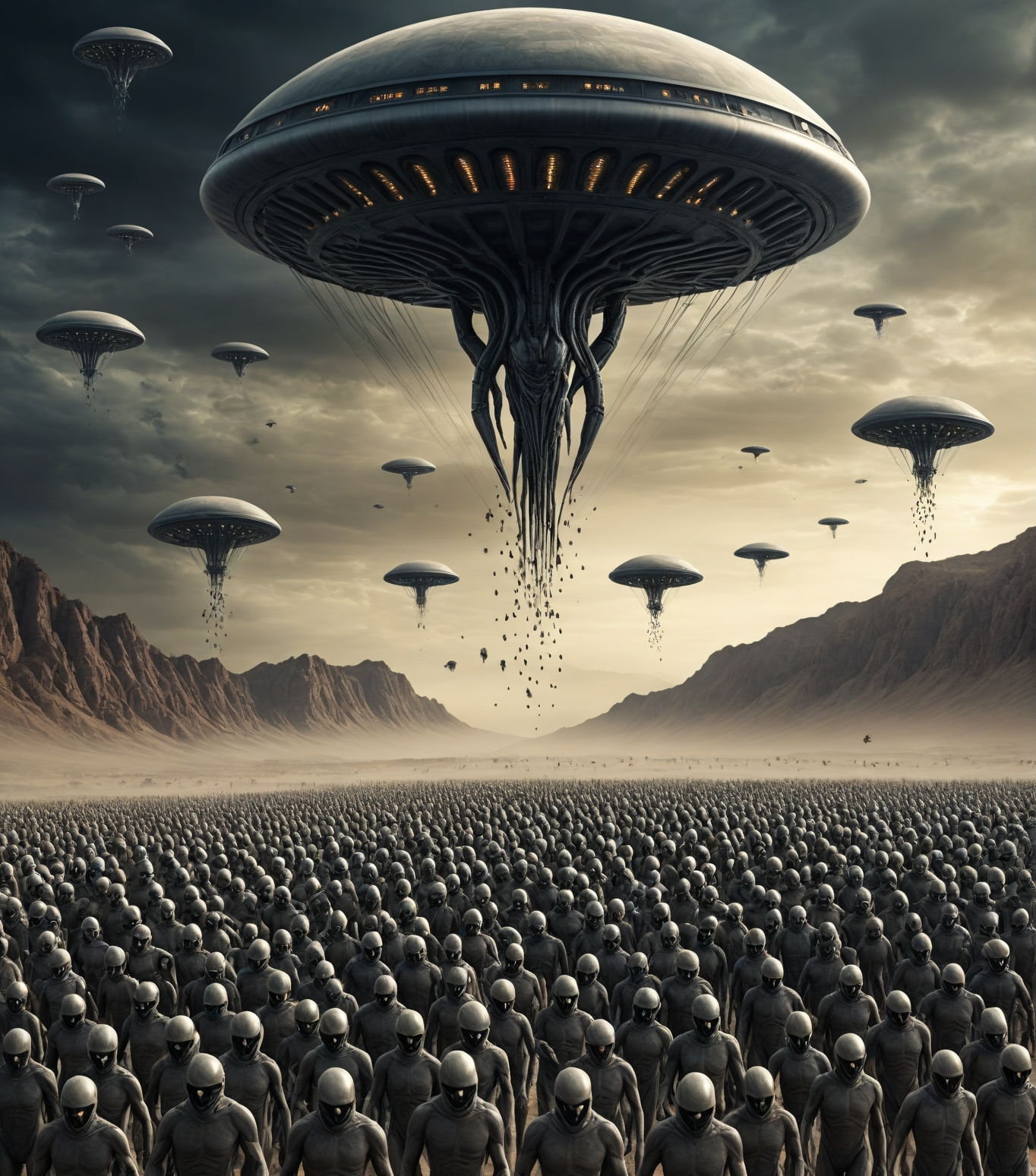The day the skies turned crimson, humanity was thrust into a war unlike any other. A colossal, extraterrestrial fleet, a testament to a civilization far more advanced than our own, emerged from the depths of space, casting a long, ominous shadow over our planet. Their intentions were clear: conquest.
The initial onslaught was devastating. Their ships, sleek and deadly, rained destruction upon our cities, their weapons capable of leveling entire neighborhoods with a single blast. Humanity, caught off guard, was forced to retreat, its defenses overwhelmed. Yet, even in the face of such overwhelming adversity, the human spirit refused to be extinguished.
As the invaders tightened their grip on Earth, a global mobilization began. Nations, once rivals, united under a common banner, their differences laid aside in the face of an existential threat. The world's leading scientists, engineers, and military strategists worked tirelessly to develop new technologies and tactics to defend the planet.
One such breakthrough came from a young, brilliant scientist named Anya Petrova. She discovered a weakness in the alien technology, a vulnerability that could be exploited to turn their own weapons against them. With the support of a team of international experts, Anya developed a countermeasure, a device that could disrupt the aliens' energy shields and render their ships vulnerable to attack.
Meanwhile, on the ground, resistance movements sprang up across the globe. Ordinary citizens, armed with courage and determination, joined the fight, harassing the invaders and gathering intelligence. Their bravery and sacrifice inspired countless others, fueling a growing sense of defiance.
The turning point came when humanity launched a daring counterattack. Using Anya's device, our forces managed to penetrate the alien fleet and disable several of their most powerful ships. The invaders, taken aback by the unexpected resistance, were forced to retreat.
However, the aliens were not defeated. They regrouped and launched a renewed assault, even more determined than before. Humanity was pushed to the brink, its resources stretched thin and its morale faltering. Yet, even in the darkest hour, hope persisted.
A new generation of leaders emerged, leaders who were not afraid to think outside the box. They realized that traditional warfare would not be enough to defeat the aliens. Instead, they proposed a more unconventional strategy: to target the invaders' infrastructure.
Using a combination of cyber warfare and sabotage, humanity managed to disrupt the aliens' supply lines and cripple their communication networks. The invaders, unable to coordinate their forces effectively, were thrown into disarray.
The final showdown took place on the moon. Humanity's forces, armed with a new generation of weapons, launched a desperate assault on the alien flagship. The battle was fierce and bloody, but in the end, humanity prevailed. The alien fleet was destroyed, and the invaders were forced to retreat.
The victory was hard-won, but it proved that even in the face of overwhelming odds, the human spirit could triumph. The alien invasion had forever changed the world, but it had also brought humanity together in a way that had seemed impossible. As the survivors rebuilt their lives, they vowed to never forget the lessons learned from the conflict. The threat of alien invasion was far from over, but humanity was now better prepared than ever to defend itself.



Comments